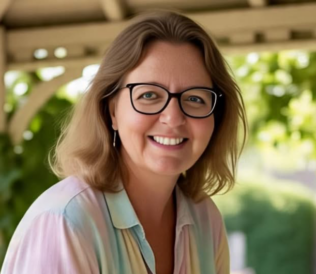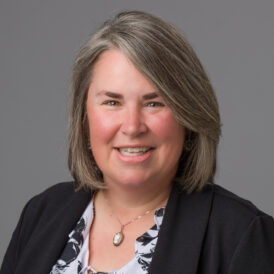WSU guest opinion: A role model in leadership

Photo supplied
Adam JohnstonNow that Dr. Andrea Easter-Pilcher is no longer employed at Weber State University and is no longer my boss, I can finally say what I really think about her. I’ll begin by stating publicly that I didn’t think it was a good idea to hire her as dean of the university’s College of Science.
For the record, I was wrong.
The issue was that I didn’t believe she could be what her record suggested. How could someone have actually built consensus at multiple schools in order to move the institutions forward? She’d emphasized that the work highlighted on her resume wasn’t simply her own, but built upon a consortium of people she’d worked alongside. I thought this was fantasy. And yet, she’d also had a history of tranquilizing and tagging grizzly bears, and perhaps that skillset would be good for working with faculty like me.
Not everyone is a good leader, but there are those we can look to as role models for ourselves and the ruler by which we would measure our own leaders. Andrea is the epitome of such a person to me, and in this moment, I feel like this example is more important than ever.
Andrea came to Weber State in 2018 to be dean of the College of Science. A “dean” is a funny, perhaps impossible job in which one is responsible for the allocation of funds and determination of positions in line with a strategic plan that is coordinated with faculty and university administration, along with a long list of other responsibilities I can’t fit here. Most of all, it means she has to work with multiple departments and all their personnel, each with their own focus and ideas. I get exhausted just imagining this.
So it was with some awe when I witnessed a meeting of science leaders, led by Andrea, figuring out how to manage a limited number of positions and resources across seven departments. The outcome of that meeting was a consensus in which there was a sense of the greater good — focused on what would be best for students and our community — even when it meant that many, including me, could not get their own top priorities.
This worked for lots of reasons, including the fact that the room was inhabited by thoughtful, constructive people. There was clarity in communication; there was honesty and integrity, empathy and respect. Importantly, Andrea prioritized goals that the group embraced, making sure we were serving students and supporting science. At the same time, Andrea trusted the expertise around her. In fact, this reliance on others’ experience and ethos was a hallmark of her leadership. She had ideas and initiatives, but she also knew that if any of these were to work, it would only be because she could lean on the extraordinary skills of her colleagues. She was a leader who cared for others and listened. She led not by edict but via collaboration. Group effort was aimed at strategic, shared objectives.
We have lots of so-called “leaders” in society and government. Some dictate via fear and hyperbole rather than shared values and facts; and some are complicit by not speaking out in spite of their positions of power. On a national level, we have a president who relies on pronouncement and force, surrounding himself with advisors who fall in line and directing agencies to halt spending, even where funding directed by congressional acts have already been approved. Many of our representatives cower to this cult of personality to retain their own positions rather than representing ideals or the people in their districts. This trajectory can’t end well.
But as Andrea begins her retirement among Montana’s mountains, her career and what she’s established does conclude on a positive. Andrea was one of those who cared for people and advanced ideals, even in the face of resistance in front of her. She worked with those she served in mind, and she built from the wisdom of those among her.
I’m wary of those we might think are born to lead, and especially those who think of themselves in that way. The role-model leaders I admire are those, like Andrea, who are called and take up that mantle with humility and curiosity. She leaves me with a lasting impression of what I should look for in leaders at all levels, Weber State and beyond. Andrea has exemplified how I want to serve and lift up others. I want to be more like her; but, most of all, I will miss her.
Adam Johnston is a professor of physics and director of the Center for Science and Mathematics Education at Weber State University, where he helps prepare future teachers and supports educators throughout Utah. This commentary is provided through a partnership with Weber State. The views expressed by the author do not necessarily represent the institutional values or positions of the university.



